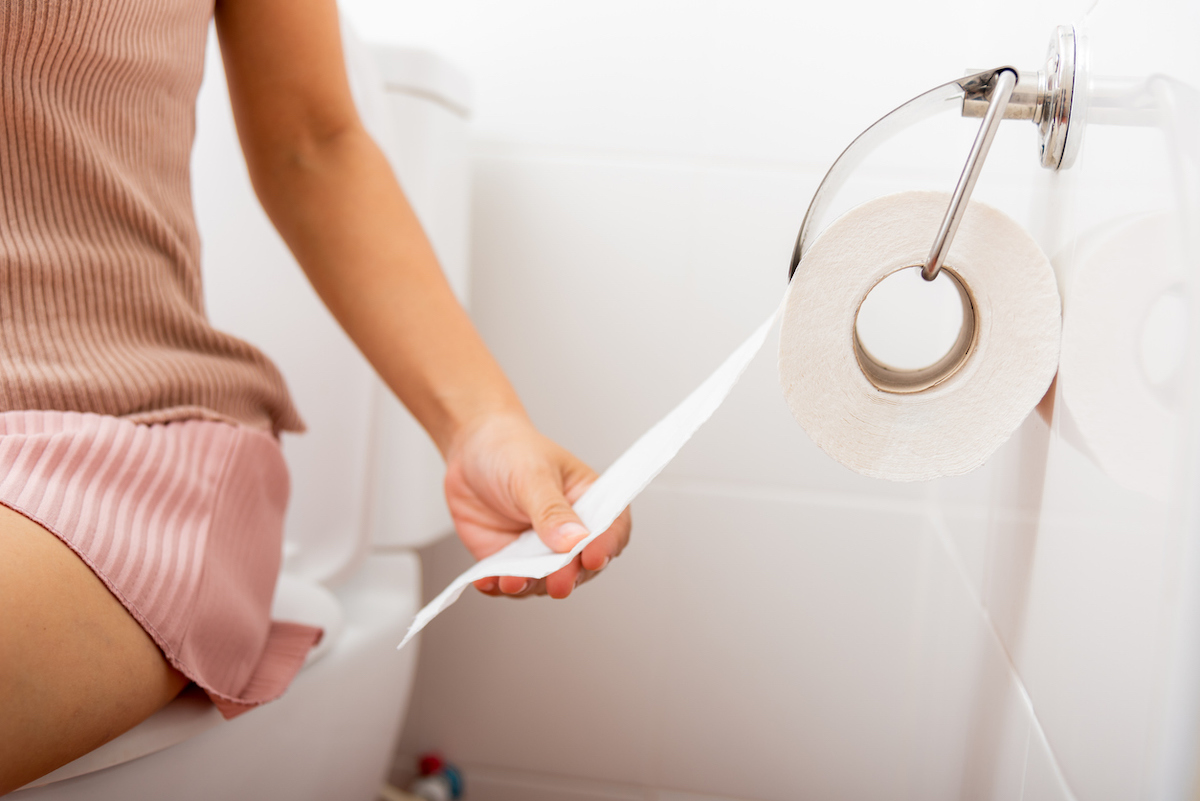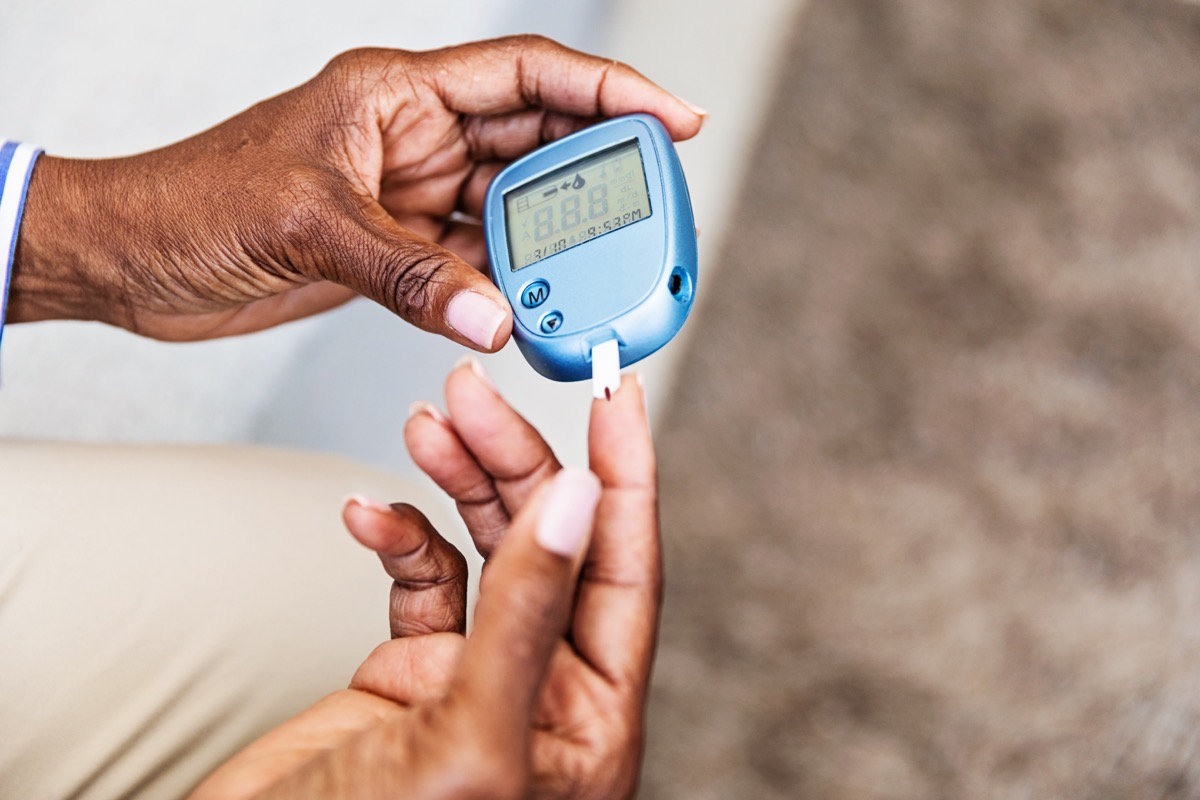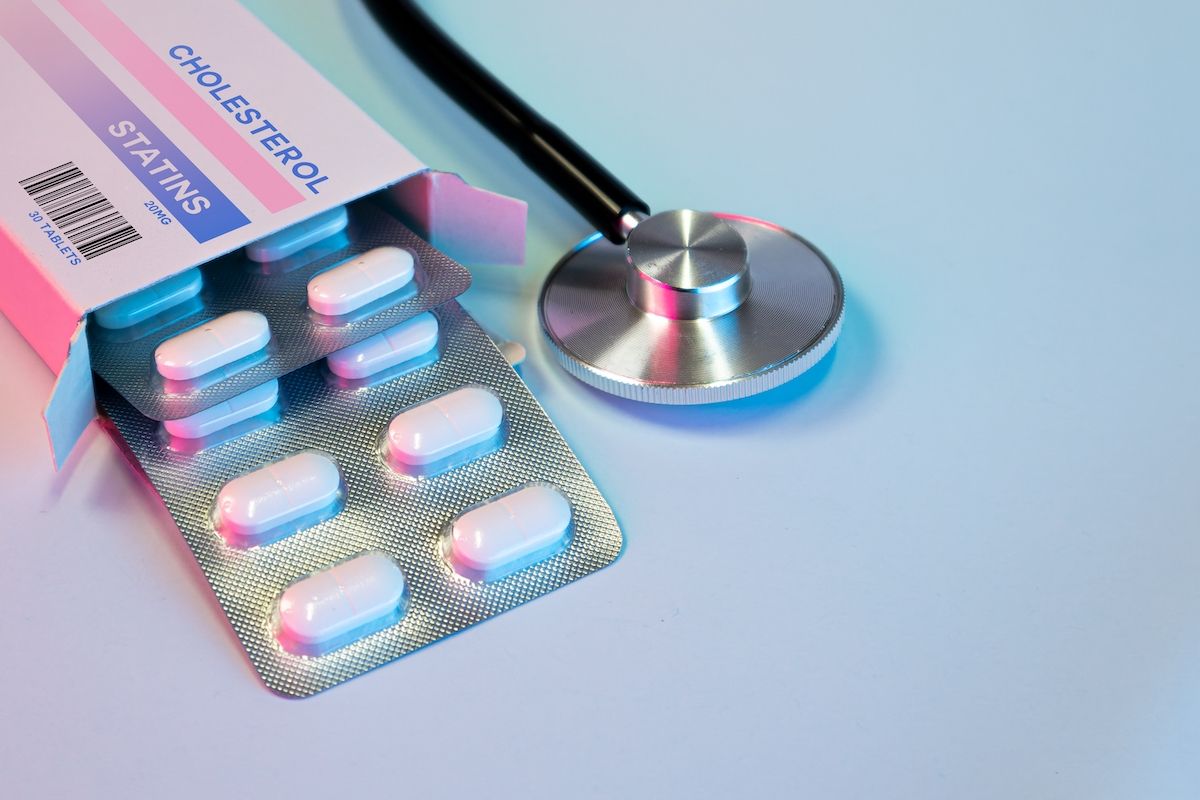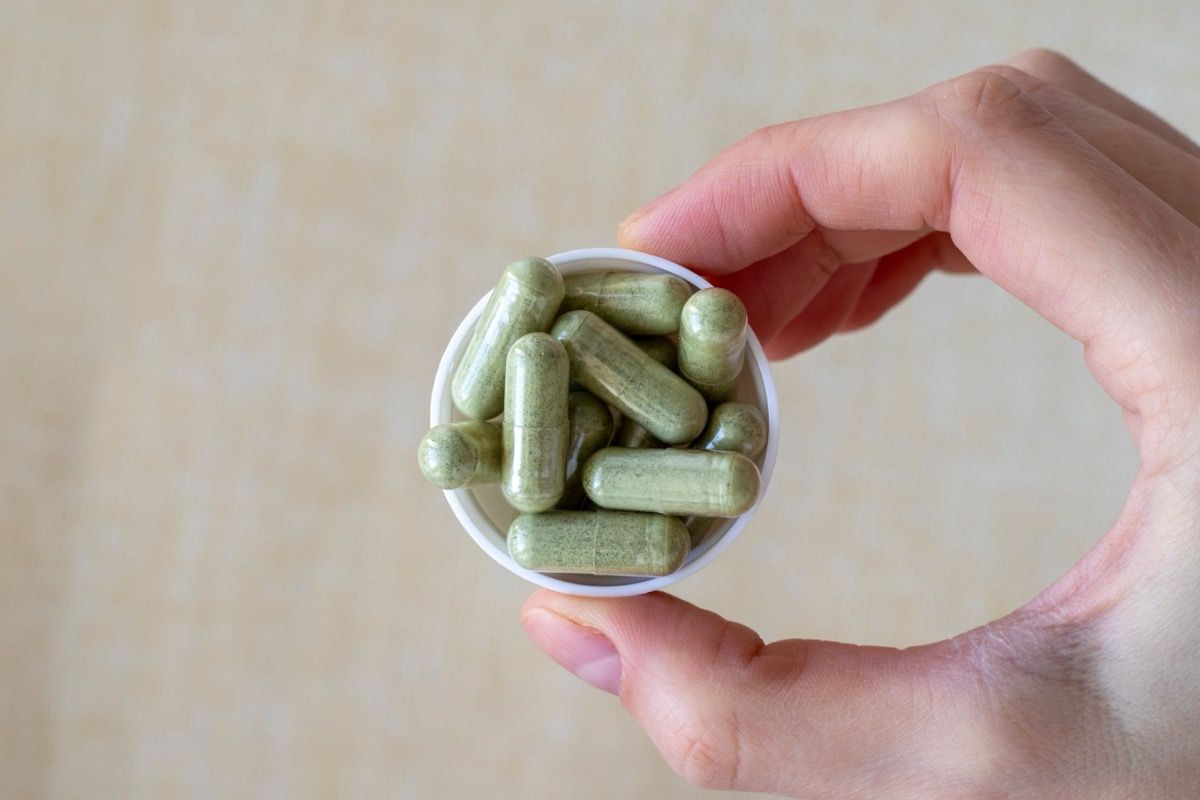5 Fiber Deficiency Symptoms, Doctors Say

Changing your diet may not cure everything that ails you, but it’s one of the best ways to lay a foundation for better health. In particular, following a whole-foods-based diet that emphasizes fruits, vegetables, whole grains, and legumes can help you manage your weight, stave off chronic health conditions, and even live longer. In addition to teeming with vitamins, minerals, and nutrients, these plant-based foods are typically rich in fiber—the roughage your body uses to aid in digestion. However, the benefits of eating enough fiber go beyond the gut—as do the consequences of developing a fiber deficiency. To ensure you keep your health on track, we’ve asked doctors for the five biggest fiber deficiency symptoms, along with their tips on how to meet your body’s requirements.
RELATED: Folate Deficiency: 5 Signs You’re Not Getting Enough Vitamin B9.
Why Do Our Bodies Need Fiber?

There are two kinds of dietary fiber: soluble fiber, which can be found in fruits, oats, barley, beans, and peas, and insoluble fiber, which can be found in wheat, rye, and other grains. Both are beneficial for the body and can be found in a range of plant-based foods.
Though fiber cannot be digested, it can affect how you digest other foods, explains Raj Dasgupta, MD, a medical reviewer for NCOA and an ABIM Quadruple board-certified physician specializing in internal medicine, pulmonology, critical care, and sleep medicine. One way it does this is by adding bulk to your stool, which makes your bowel movements easier to pass.
According to Chris Mohr, PhD, RD, a fitness and nutrition advisor at Fortune Recommends Health, the benefits of fiber only begin in the gut.
“Fiber is like the unsung hero of your health,” he says. “It also helps manage blood sugar levels, lowers cholesterol, and keeps us feeling full, which helps control weight.”
RELATED: 7 Calcium Deficiency Symptoms, According to Doctors.
What Does It Mean to Have a Fiber Deficiency?

A fiber deficiency occurs when you’re not eating enough fiber to meet your body’s requirements. “Adults typically need between 25 to 38 grams of fiber daily, yet most are only getting about half of that at most,” says Mohr.
Dasgupta notes that not getting enough fiber in your diet can lead to gut health problems, as well as broader health problems. “Without enough fiber, your digestive system can slow down, causing constipation and other issues,” he says.
Who Is Most Prone to Low Fiber?
People with a poor diet that lacks certain whole, plant-based foods are most likely to have a fiber deficiency. “If you don’t eat enough fruits, vegetables, whole grains, or legumes, you’re likely not getting enough fiber. Low-carb diets or diets that are heavy in processed foods can also lead to low fiber intake,” says Dasgupta.
Mohr adds that older adults require less fiber, but they’re also less likely to get the amount they need. The Mayo Clinic recommends that men older than 50 should consume at least 30 grams of fiber per day, while women over 50 should consume at least 21 grams per day.
How Is a Fiber Deficiency Diagnosed?
If you’ve noticed symptoms of a fiber deficiency or believe that your diet is lacking in fiber, you can ask your doctor to assess whether or not you have a deficiency.
“To diagnose fiber deficiency, a doctor typically assesses your diet and symptoms. They may also use specific studies and blood tests to rule out other conditions linked to fiber deficiency,” Dasgupta says.
RELATED: 7 Protein Deficiency Symptoms, According to Doctors.
Fiber Deficiency Symptoms
There are five key symptoms that might tip you off to having a fiber deficiency. If you notice these happening to you, it’s a good idea to start tracking your symptoms and share them with your doctor.
1. Constipation or digestive problems

One of the most common—and most immediately felt—symptoms of a fiber deficiency is constipation or digestive irregularity.
“Infrequent, difficult, or incomplete bowel movements often result from low fiber intake,” says Brittany Ferri, PhD, OTR/L, an occupational therapist with NCOA.
“Dietary fiber increases the weight and size of your stool and softens it. A bulky stool is easier to pass, decreasing your chance of constipation. If you have loose, watery stools, fiber may help to solidify the stool because it absorbs water and adds bulk to stool,” the Mayo Clinic further explains.
2. Bloating

Bloating is another common symptom of fiber deficiency.
“You might feel bloated because of all the gas building up in your belly,” Dasgupta says. This may also present as a feeling of fullness or distention in the abdomen.
3. Weight gain

Dasgupta says that without enough fiber, you might find yourself packing on some extra pounds. In fact, there are a few ways that eating too little fiber can lead to weight gain, according to the Mayo Clinic.
“High-fiber foods tend to be more filling than low-fiber foods, so you’re likely to eat less and stay satisfied longer. And high-fiber foods tend to take longer to eat and to be less ‘energy dense,’ which means they have fewer calories for the same volume of food,” their experts write.
4. Fluctuations in your blood sugar

Fiber plays an important role in helping to regulate blood sugar, which is why it’s often recommended that people with Type 2 diabetes follow a high-fiber diet.
However, a fiber deficiency can cause unexpected fluctuations in your blood sugar levels, even if you don’t have diabetes. That’s because, unlike other types of carbohydrates that can be absorbed by the gut and cause spikes in blood sugar, fiber helps slow the absorption of sugar.
5. High cholesterol

Finally, changes to your cholesterol levels could also reflect a lack of dietary fiber, says the Center for Disease Control and Prevention (CDC).
“Fiber prevents your body from absorbing some fat and cholesterol. This lowers your triglyceride and cholesterol levels, and may reduce your risk of heart disease,” CDC experts write.
In fact, according to the Mayo Clinic, consuming just five to 10 grams of soluble fiber each day can help lower your LDL, or “bad” cholesterol.
RELATED: 7 Low Magnesium Symptoms to Watch Out For, According to Doctors.
What Conditions Are Related to Fiber Deficiency?
When the problem is left unaddressed, people with fiber deficiencies may be at higher risk of certain chronic health conditions.
“Insufficient fiber intake can result in chronic constipation, diverticulosis, irritable bowel syndrome (IBS), and a heightened risk of heart disease. With time, it can also contribute to the onset of type 2 diabetes and certain cancers,” including colon and bowel cancer, Dasgupta warns.
Fiber Deficiency Causes
Not eating enough fiber-rich foods
A diet lacking in fruits, vegetables, whole grains, and legumes can result in fiber deficiency—and in fact, this is the most common cause. Many people are unaware of the importance of fiber and simply don’t give it enough attention in their diets, replacing fiber-rich, plant-based foods with processed foods and refined grains.
Following a low-carb diet
Fiber is a type of carbohydrate, so strictly limiting your carb intake can lead to fiber deficiency. Experts emphasize that instead of thinking about all carbohydrates as either “good” or “bad,” you should instead distinguish between complex carbohydrates, which are digested slowly and tend to benefit your health, and simple carbohydrates, which are digested quickly and can cause spikes in your blood sugar.
RELATED: 8 Signs You’re Not Getting Enough Iron, Doctors Say.
How Are Fiber Deficiency Symptoms Treated?

If you have a known fiber deficiency, your doctor will most likely recommend increasing your intake of fiber-packed foods like fruits, vegetables, whole grains, nuts, seeds, legumes, and peas.
“Gradually integrating more fiber into your meals and staying hydrated can help alleviate symptoms. Your doctor might also recommend fiber supplements as part of your treatment,” Dasgupta says.
Eating more fiber-fortified foods can also help you reach your fiber consumption goals. Fortified cereals, granola bars, and yogurt are all popular options. “The added fiber [in these products] is usually labeled as ‘inulin’ or ‘chicory root,'” the Mayo Clinic notes.
Is it Possible to Prevent Fiber Deficiency?
Preventing a fiber deficiency is relatively simple, as long as you have access to a variety of whole, plant-based foods and understand the importance of consuming a variety of fiber types.
“Maintaining a balanced diet rich in high-fiber foods can effectively prevent fiber deficiency. Make sure to monitor your daily fiber intake and adjust your diet accordingly,” says Dasgupta. “Regularly consulting with your doctor and keeping track of your dietary habits can help make sure you have good fiber levels.”
Conclusion
Increasing your awareness of fiber-rich foods and adding more plant-based variety to your diet can help stave off fiber deficiencies and the chronic illnesses associated with them.
And don’t forget—switching up your fiber sources comes with big benefits. “Consider fiber like a vitamin or mineral, in the sense that there are many different types, so variety is key when it comes to fiber sources,” says Mohr.
Best Life offers the most up-to-date information from top experts, new research, and health agencies, but our content is not meant to be a substitute for professional guidance. When it comes to the medication you’re taking or any other health questions you have, always consult your healthcare provider directly.